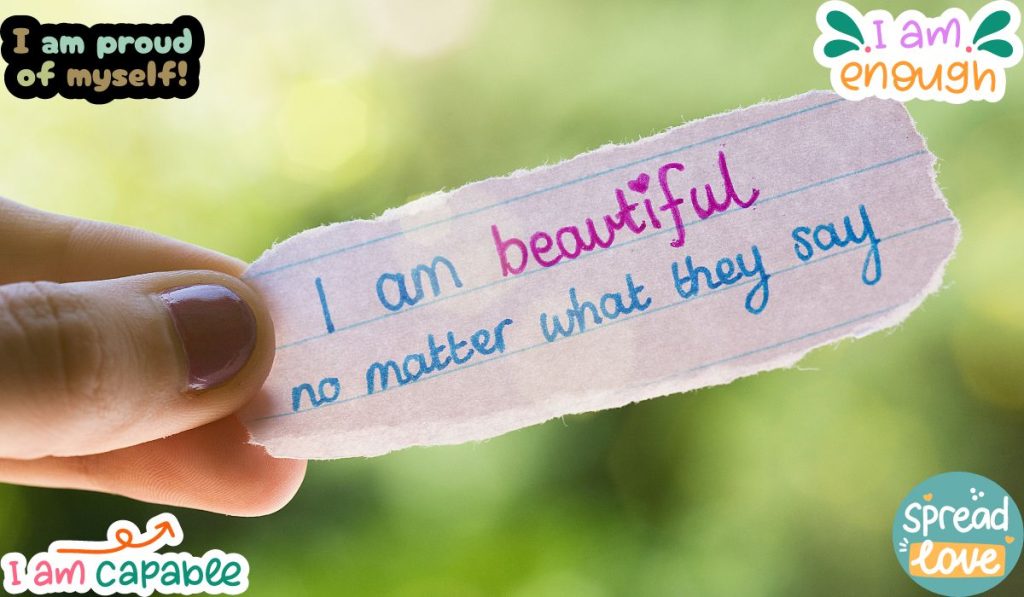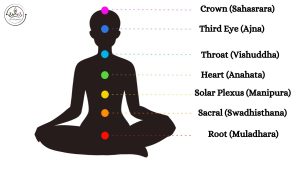Key Takeaways
- Affirmations are powerful tools for transforming your thoughts and beliefs.
- There are various affirmations, each catering to different aspects of life.
- Consistency and belief are key to effective affirmation practice.
- Affirmations can be used for manifestation when paired with visualization and action.
- The benefits of affirmations include improved self-confidence, reduced stress, and enhanced motivation.
- Repeating affirmations can lead to neuroplasticity, the brain’s ability to reorganize itself by forming new neural connections, thereby changing its physical structure.
Introduction
Affirmations are powerful, yet straightforward, statements we repeat to ourselves to tap into the subconscious mind. Although they stem from ancient traditions, affirmations have become popular in today’s self-help and personal development circles. Unlike simple positive thinking, affirmations are purposeful declarations to reshape our thoughts and beliefs. With regular practice, they can significantly influence our mindset, behavior, and even the reality we experience.
Why should you think about adding affirmations to your daily routine? Affirmations can serve as a powerful link between what you consciously want and the deep-seated beliefs in your subconscious mind. When combined with practices like meditation and manifestation, they can significantly boost your ability to attract the things you desire. The scientific backing for these affirmations has been shown to promote neuroplasticity, the brain’s ability to reorganize and form new neural connections. By regularly repeating positive affirmations, you can start to shift your mindset from doubt to confidence, opening up new pathways for positive changes in your life.
Types of Affirmations
Many types of affirmations exist, each with a specific purpose and usefulness, attended to by different areas of our lives. Knowing these various forms will help in picking out the right ones for your most cherished goals.
Self-Affirmations: They are general kinds of affirmations that uplift the self and instill self-worth. For example, one might say, “I earn love and respect by being true to myself,” as a way of building yourself up and countering negativity.
Health Affirmations: To make the body strong and healthy, general well-being affirmations are created. One such example could be “I make choices that strengthen my body and energize my life,” encouraging healthier decisions and building vitality.
Wealth Affirmations: These are affirmations targeted at bringing about a life of prosperity and wealth. Repeated statements like, “I have the ability and determination to acquire skills that will increase my wealth” encourage proactive thinking toward abundance and move away from thoughts of scarcity.
Love and Relationship Affirmations: Used for enhancing relationships and drawing more love, these affirmations focus on developing favorable interactions with other people. For example, “I nurture loving and supportive relationships in my life,” which enhances the ability to bond with others at a deeper level.
Career Affirmations: These are affirmations aimed at professional development and success. Statements like “I have the skills and confidence to achieve my professional goals” help reinforce your thought process toward professional objectives and encourage you to work toward them.
Spiritual Affirmations: These affirmations focus on spiritual growth, finding serenity, and increasing your connection with yourself and the universe. “I will deepen my connection with the divine energy of the universe” is an example that fosters spiritual growth.
How to Practice Affirmations Daily?
Well, the daily practice of affirmations may be a life-changing ritual. And while it may sound
challenging to some, it is easy if practiced daily. Here is the step-by-step guide to help you apply the use of affirmations in your daily life routine:
- Select Your Affirmations: First, you must select a few affirmations that you resonate with personally. They should all be a positive, present-tense statement that resonates with you, and most importantly, something that you believe is achievable. (Note: DO NOT use passive affirmations like “My bank is filled with cash” when you’re broke. Your brain’s *BS* meter will go off immediately, and affirmations may end up working against you instead of empowering you.)
- Set Aside Time: Designate a few minutes each day, ideally in the morning or when you go to bed, to recite them. This could be during your meditation, while you brush your teeth, or on your commute.
- Repeat Out Loud or Silently: Say the affirmation aloud, or to yourself. The purpose is to feel the words in your body as you state them – to connect with the affirmations and allow the meaning behind them to organically creep into your subconscious.
- Visualize and Feel: While you say the affirmations, be able to visualize the outcome you are stating and feel the feelings of anticipation of the conclusion. This is a significant step you can take to create a brain bridge from the affirmations to the feelings.
- Write them Down: Additional reinforcement can occur when you write the affirmations in your journal. Similar to speaking the affirmations, writing them down engages your brain differently and can make the affirmations more potent.
- Habitual Consistency: Affirmations should become habitual. Consistent review of the affirmation or statements will be vital to the rewiring of your subconscious mind and creating sustainable change.
How to Use Affirmations for Manifestation?
Manifestation refers to the act of making a dream a reality by focusing on your desires, intentionally and with the belief that it is possible to do so. Affirmations work effectively in terms of manifestation by integrating your thoughts with your intent to manifest a desired outcome. Here are ways to make affirmations work for manifestation:
- Be Specific: Make your affirmations specific enough to personalize and state exactly what you want. Instead of “I am successful,” say “I achieve success in my business by delivering value and consistently attracting loyal clients through my dedication and effort.”
- Combine with Visualization: Use your affirmations in conjunction with detailed visualization. Imagine yourself living this reality you want, and feel the emotions of accomplishing the goal.
- Trust the Process: Affirmations and actions take you to your goals. Give up doubts and shift the mindset to one of faith and expectancy.
- Take Inspired Action: Although affirmations will change your mindset, only when you take actual step-by-step action will real doors open. Look out for opportunities and make plans towards your goals as these arise.
Below is a great video explaining how affirmations work:-
Example of Affirmations

Here are some affirmations to get you started:
- Self-Affirmation: “I build confidence, capability, and worthiness through my actions and choices.”
- Health Affirmation: “I make choices that energize every cell in my body and support my health.”
- Wealth Affirmation: “I am committed to acquiring skillsets needed to earn $10,000 a month.”
- Love Affirmation: “I cultivate loving and supportive relationships with the people in my life.”
- Career Affirmation: “I drive my success and professional growth through continuous learning and effort.”
- Spiritual Affirmation: “I actively align myself with my higher purpose and the universe.”
Benefits of Affirmation Practice
- Boosts Self-Confidence: Regular affirmation practice helps build a positive self-image and increases self-esteem.
- Reduces Stress: Affirmations can calm the mind and reduce anxiety by promoting a more optimistic outlook.
- Enhances Motivation: By focusing on your goals, affirmations can increase your motivation and drive to achieve them.
- Improves Mental Health: Affirmations can help combat negative thought patterns and promote a healthier, more positive mindset.
- Fosters Resilience: By reinforcing positive beliefs, affirmations can help you bounce back from setbacks more quickly.
Bottom-line
Affirmation practice is a potent technique to change your ideas, convictions, and eventually your life. You can develop a more optimistic outlook, attract the things you want, and accomplish your objectives by including affirmations in your everyday practice. Recall that consistency and faith in the process are crucial. Start by repeating a few affirmations that you find meaningful, and then observe how your life starts to change for the better.
FAQs
1. How long does it take for affirmations to work?
Everyone’s results with affirmations will be different. Some will feel the shift in their minds and attitudes after a few days, and with others, it may take weeks or months. Here, the crucial elements are time, consistency, and repetition. When you do affirmations every day, what happens is that you start reprogramming your subconscious mind gradually. This is what will lead to permanent change in due course.
2. How to make affirmations work faster?
How to make affirmations work faster?
Combine the affirmations with visualization and feelings to make them work faster. While stating your affirmations, see what you want to achieve; feel what it is like if you achieve that. Also, remember that all of your affirmations should be specific and positive, in the present tense. Be regular; make affirmations a part of your daily routine, and most importantly, ensure that the affirmations you are repeating resonate with you and that they are something that you genuinely believe is achievable.
3. How many times do I have to repeat my affirmations?
There is no fixed number of times you need to repeat affirmations for them to be effective. However, repeating them several times a day can reinforce their impact. Aim for at least three repetitions per affirmation, and try to incorporate them into your morning and evening routines for best results.
4. Why 21 days for affirmations?
There’s a reason 21 days is picked specifically: it is based on the idea that it takes roughly three weeks to develop any type of new habit. By making affirmations 21 days in a row, it should begin to become part of your routine, and your subconscious should be able to better understand and begin acting on them.
5. How long should I use affirmations?
Affirmations should be used for as long as they work. For some individuals, this might be a lifetime implementation, while for others, it works best for a specific period in attaining certain goals. Affirmations should be fluid, not fixed. Change them to suit the current stage of your life.
References
Hosmer, M. (2004). The experience of practicing affirmations regularly: A phenomenological investigation. Union Institute and University.
Hay, L. (2004). I Can Do It: How to use affirmations to change your life. Hay House, Inc.
Dayton, T. (1992). Daily Affirmations for Forgiving and Moving on. Health Communications, Inc…
Fishel, R. (2010). Change almost anything in 21 days: Recharge your life with the power of over 500 affirmations. Simon and Schuster.
Arquiza, L. (2020). The Effect of Positive Affirmations on Self-Esteem and Well-Being in College Students.
Critcher, C. R., Dunning, D., & Armor, D. A. (2010). When self-affirmations reduce defensiveness: Timing is key. Personality and Social Psychology Bulletin, 36(7), 947-959.




